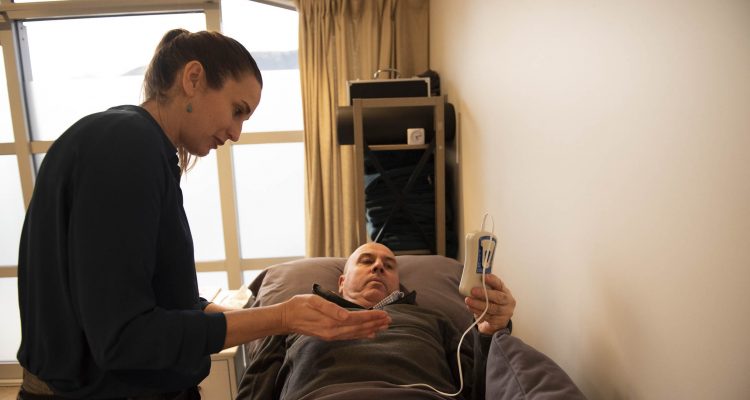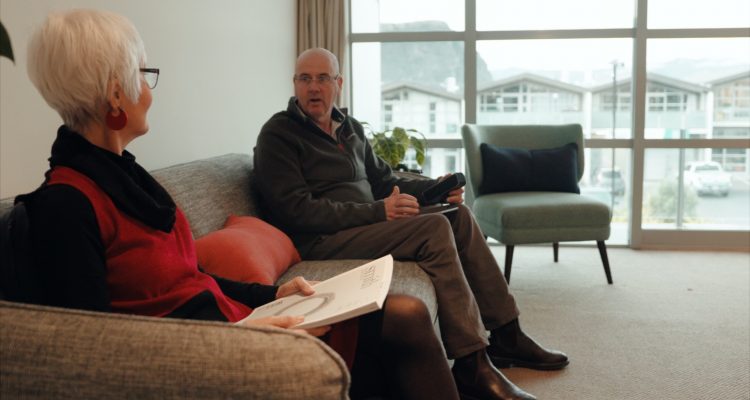Pelvic Floor strengthening for men
Identifying the pelvic floor muscles and knowing how to feel a definite squeeze and lift action is the first part of being able to strengthen these muscles. Even men who feel just a small movement because of muscle weakness can improve! At first, you will likely perform these exercises in lying or sitting. As these muscles strengthen you will progress to more functional positions such as standing. Your therapist will design a program specific to you.
We use technology such as EMG biofeedback to show how strong the muscles are and help teach you how to get the best activation for the perfect program for you. Optimisation of pevic floor muscle strength will take 3-4 months of regular training of the muscles.
Remember to use your muscles whenever you exert yourself during daily activities. Pelvic floor muscle exercises can not only increase the ability to hold urine, but it can also help control an unruly overactive bladder.




